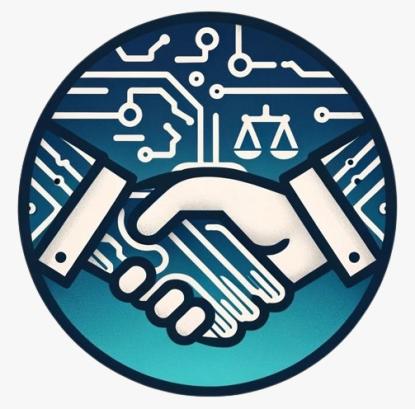
In the rapidly evolving digital era, ensuring effective access to judicial decisions has become an essential component of a fair and transparent justice system. Recognizing the transformative potential of technology in the legal realm, Professor Marco Giacalone and Dr. Gioia Arnone have co-authored an insightful chapter titled "Access to Judicial Decisions, E-justice and the Crea2 Project”, integral part of the volume L’accès aux décisions de justice à l’ère du numérique: Perspectives luxembourgeoise, européenne et comparée (Larcier-Intersentia, 1^ edition, 2025, Belgium - Luxembourg), edited by Frédérique Boulanger and Séverine Menétrey.
As judicial systems across Europe strive to improve transparency and accessibility, the integration of artificial intelligence (AI) within e-justice platforms marks a significant leap forward. The digital transformation of legal processes enables practitioners, academics, and the general public to navigate complex judicial archives with unprecedented ease and accuracy. In this dynamic landscape, the chapter by Prof. Giacalone and Dr. Arnone provides an incisive analysis of how AI-enhanced tools can streamline access to judicial decisions—a critical step toward realizing more accessible and efficient justice systems.

The chapter delves into the practical implementation of the Crea2 Project, an innovative e-justice initiative designed to harness AI capabilities to improve the accessibility and usability of judicial decisions. Key highlights include:
- Detailed Case Study Analysis: The authors present a comprehensive examination of the Crea2 Project, illustrating how AI techniques are deployed to organize, categorize, and facilitate search and retrieval functions within vast judicial databases.
- E-Justice Integration: An evaluation of the interaction between traditional judicial systems and modern e-justice solutions, emphasizing the benefits and potential challenges of adopting AI in legal settings.
- Enhanced Access to Justice: A discussion on how these technological advancements contribute to a more equitable justice system by providing broader public access to legal decisions, ultimately empowering citizens and legal professionals alike.
- Comparative Perspectives: Insights drawn from Luxembourgish, European, and comparative experiences, offering a multifaceted understanding of the digital transformation in the judicial arena.
The work of Prof. Giacalone and Dr. Arnone not only documents current trends in legal technology but also sets the stage for future innovations in the field. Their analysis underscores the importance of continuous collaboration between legal experts, technologists, and policymakers to navigate the challenges posed by digital transformation. As AI and e-justice initiatives become increasingly central to modern legal systems, this chapter serves as both a timely case study and a visionary guide for enhancing access to justice across various jurisdictions.
The inclusion of this chapter in L’accès aux décisions de justice à l’ère du numérique reflects a broader commitment to understanding and implementing digital solutions in legal practice. By exploring the intersection of AI and judicial access, Professor Marco Giacalone and Dr. Gioia Arnone offer invaluable insights that will resonate with scholars, practitioners, and policymakers dedicated to the evolution of justice in the digital age.
For those interested in the future of legal innovation, this chapter is an essential read, demonstrating how technology can bridge gaps in access and contribute to a more responsive and inclusive justice system.
